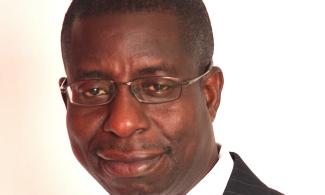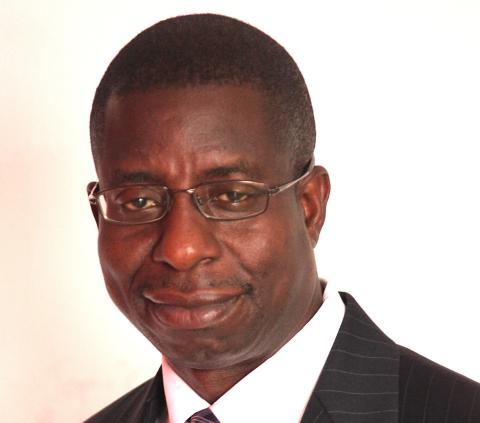
The failure, two times in a row, of the Senate to screen ministerial nominee Chibuike Rotimi Amaechi raises the question whether the third time will be the charm to break the deadlock of a contrived corruption allegation against the former Rivers State governor.

I say contrived advisedly, given that no allegation of corruption emerged during the long, bruising battle by President Jonathan and his First Lady with Amaechi (wouldn’t evidence of his corruption have been used against him, or is it that they just didn’t care to look for it?) and with specific regard to the circumstances in which Amaechi is now alleged to have embezzled N70 billion belonging to the people of Rivers State. Anyone who has been paying attention to goings-on in Rivers State since the latter half of Amaechi’s second term as governor—in particular, since the (in)famous Nigeria Governors Forum election he won but which President Jonathan’s henchmen insisted he lost because in Jonathanian democracy and mathematics, 16 is greater than 19—knows that there is no limit to what current governor Nyessom Wike would do to harm Amaechi politically. And given the rivers of blood spilled to install Wike governor, perhaps also personally as well. But I digress.
The ostensible reason why the senate could not screen Amaechi is that a petition based on the report of a hastily constituted judicial panel of enquiry headed by Justice Omereji of the Rivers State judiciary alleges that Amaechi misappropriated N70 billion. Sensing that his invitation to appear before Wike’s inquisition panel would be a case of walking with eyes wide open into the lion’s den—a case of “come quickly to your assured condemnation,” to borrow the unforgettable words of the late Justice Kayode Eso when describing a similar invitation to the late Gani Fawehinmi to appear before the Legal Practitioners Ethics and Privileges Committee headed by his bitter foes in the bar—Amaechi had hastened instead to court to challenge the constitutionality of the commission. The matter is currently before the Court of Appeal. Moreover, Amaechi has also sued the PDP for libel and dared Wike and his Attorney-General to bring proof of his alleged corruption to court where he would meet them.
But no one is fooled that the senate is hamstrung by the mere allegation of “misappropriation.” (By the way, is Wike treading carefully in echoing the late corruption lexicographer-in-chief, Rear-Admiral Augustus Aikhomu, and declining to allege outright embezzlement?) By its own admission, conveyed to us by its Committee on Ethics, Privileges, and Petitions, there is nothing preventing the screening since senate rules forbid an inquiry into any matter already before a competent court. In this case, before two competent courts. If you ask me, that rule is ill-conceived and needlessly surrenders the parliament’s inherent power of oversight and ensuring good governance. As long as the senate does not purport to usurp judicial powers and limits itself to a fact-finding or investigative role, it can look into any allegations against a citizen, whether or not those allegations be the subject of a court action, especially when exercising its power of screening nominees for high public office to ascertain that they are fit and proper persons and worthy of public trust.
But again, I digress. Here is the point: the senate stands the palpable risk of ridiculing itself even more than it has already done if it fails to screen Amaechi at its third attempt on Tuesday. Thankfully, Amaechi has sent a helpful handout, by way of his lawyers’ letter, to Senate President Saraki and to the Ethics, Privileges, and Petitions committee. It is either there is a corruption conviction against Amaechi, which irredeemably renders him unfit to be a minister, or there are only allegations begging proof; allegations fabricated, it is possible to say, with malice aforethought for the sole purpose of injuring his reputation and preventing him from being appointed into any high office by the man whose election as president he spear-headed. It is public knowledge that Amaechi’s cardinal sin is that he was a moving spirit of the mass defection of Peoples Democratic Party governors into the APC, a move that literally broke the political spinal cord of the PDP and watered the ground for the seeds of change that blossomed into a landslide APC victory in the general elections. More specifically, Amaechi is accused of betrayal, of turning his back against a son-of-the-soil to work for the victory of the Muslim “enemy” Buhari who was dubbed in malicious campaign propaganda as the Boko Haram general.
But allegations do not turn to convictions simply because they were dredged up by a judicial commission of inquiry, never mind one tainted right from the start with a hard-to-rebut charge of bias. Nor that a petition based on it was presented by a senator. Which is why said EPP committee announced its suspension of investigation into the petition. Anything short of screening Amaechi on Tuesday would amount to intolerable sanctimoniousness, to playing holier-than-thou at the very time that an indictment before the Code of Conduct Tribunal of the senate’s presiding officer has not led to the “distinguished” senators stripping him of the privilege (talk about privileges!) of directing the affairs of the upper house of the parliament. The reason why he not only keeps that privilege but presides over the screening of ministerial nominees for professional competence and personal integrity? That he is innocent until proven guilty, however heinous the crimes alleged against him might be.
There is yet another reason why any allegation raised by Wike in his scorched earth war against Amaechi ought to be treated with the utmost circumspection, if not disdain: he is not by any chance a whistle-blower or moral crusader. Far from that, he cuts the unmistakable figure of a man driven by a consuming need to settle political scores. I said at the beginning that he would go to any length to win his vendetta against Amaechi. Twice in July, with the petition against his election as governor going very badly, Wike betook himself from Port Harcourt to Abuja to visit uninvited and unannounced the Chief Justice of the Federation, Justice Mahmud Mohammed. Wike was not able to explain the reason for his unscheduled visits, but the pubic got a good clue in the fact that the chairman of the tribunal hearing the petition, Justice Mu’azu Pindiga, was removed after investigations by the Department of State Security revealed that he had accepted a bribe of N200 million. There were also allegations of other bribes, mostly in kind, such as two houses in Abuja and also in Gombe. Already the rumour mill is rife that senators have started receiving heavy Ghana-must-go bags as inducement not to screen Amaechi under the ruse of the allegations of corruption against him. True or not, when it comes to rumours of GMG bags in the National Assembly, Nigerians have learnt not to turn their ears to the wind.
I don’t expect that the senate will be happy to turn itself into a weapon in Wike’s arsenal of calumny, propaganda, and bribes. But if it does, and fails to screen Amaechi with its indicted president directing proceedings from the purported high chair of moral integrity, then the ultimate shame will be President Buhari’s. No one paid a higher price for the transformation of the people’s crying need for change that led to his election as president than Amaechi who, to say the obvious, also directed his campaign. It is worth reiterating that Amaechi’s troubles which seemed to have peaked with his being turned by President Jonathan and his wife, acting through their garrison commander, police commissioner Joseph Mbu, into a prisoner in the Port Harcourt government house, appear to have doubled with the charge that he betrayed a son of the soil. Having deflected criticisms of an ethnic slant in the appointment of his personal staff with the sentimental argument of rewarding the loyalty and hard-work of his associates, would the president be able to escape a renewed charge of ethnic bias if he fails to ensure Amaechi’s screening and confirmation as a minister in his long-delayed cabinet? And in that event, what other appropriate public service office might he be able to give to him after every cabinet-rank political post might have been filled? Indeed, the question I ask of the senate in my title may also be asked of the president in a slightly different way: Will Wike prevent President Buhari from rewarding Amaechi for his heroism and tireless labour for APC’s victory in the March presidential election? The nation and the world wait with bated breath.